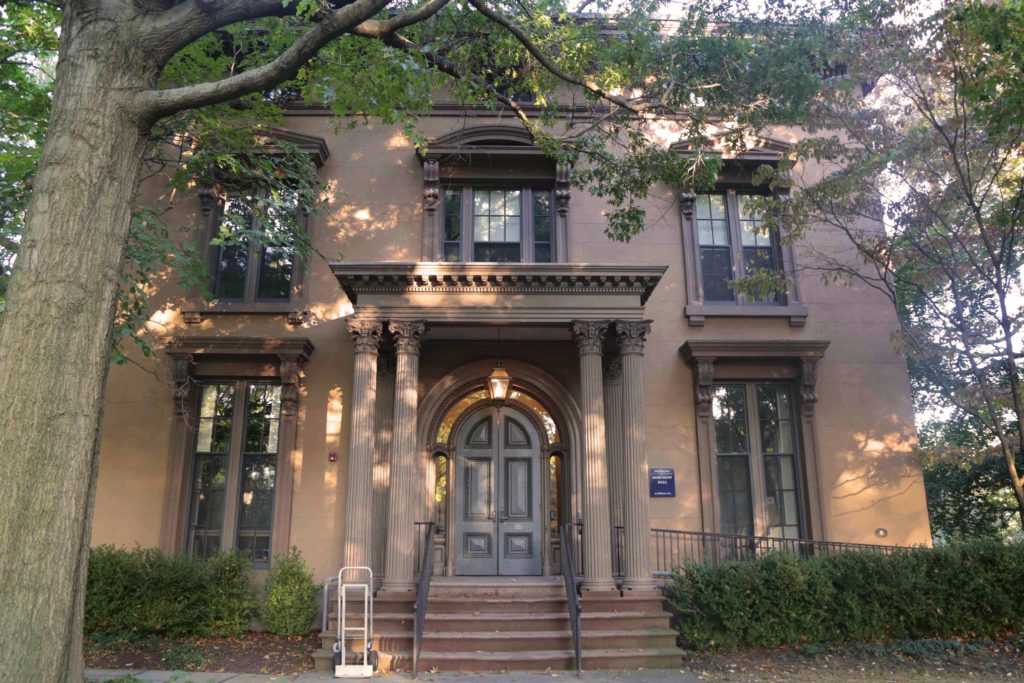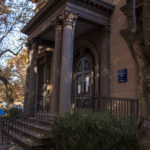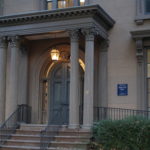Jackson Institute hosts third ‘Kurds in the Middle East’ event
The Jackson Institute convened a discussion of the current state of the Kurds in the Middle East from the perspective of two leading diplomats from the region.

Yale Daily News
On Tuesday, the Jackson Institute for Global Affairs hosted the third event in its four-part discussion series on the Kurds, an ethnic group in the Middle East, entitled “Kurds in the Middle East.” The event presented perspectives on Kurdish issues from the perspective of two senior diplomats from the region.
The event, held over Zoom, was moderated by Senior Fellow Rory Stewart, who led a discussion between Bayan Sami Abdul Rahman, representative of the Kurdistan Regional Government, or KRG, to the United States and Sinam Mohamad, representative of the Syrian Democratic Council to the United States. The panelists discussed the situation of the Kurds in North East Syria, the priorities of the KRG, the Kurdish struggle for autonomy in Syria and the relationship between the Kurds and their neighbors in the region. The event was open to anyone in the Yale community.
“The Kurdish issue is one of the most important and complicated issues in the Middle East, as the Kurds live in four parts in different countries under different governments, in Turkey, in Iraq, in Iran and in Syria,” Mohamad said. “Of course we are very lucky to have the Kurdistan Region [in Iraq] recognized, unfortunately in the other countries it is not.”
The discussion began with Mohamad outlining the situation that the Syrian Kurds find themselves in. She explained that in North East Syria, the Autonomous Administration of North and East Syria, also known as Rojava, has de facto control over the region. However, while there are around two million Kurds in Syria, primarily located in Rojava, they are only one of the ethnic groups in that region, which also includes Yazidis, Turks, Arabs and Iraqis.
Mohamad said that there were three key issues facing the Kurds in Syria today: the remnants of the ISIS ideology, the occupation of parts of northern Syria by the Turks and a refugee influx from occupied territories.
Stewart then drew the discussion toward the Iraqi Kurds living under the KRG in Iraq. Rahman said that the group is currently facing a number of compounding problems. It, too, is dealing with a humanitarian refugee crisis: there are still a million refugees from Syria and other parts of Iraq in the region, according to Rahman. While this number has been declining, it is still very significant for a region with only five million people in total.
“The impact of COVID has been very negative,” she said. “Many international NGOs and agencies have not been able to continue delivering services or assistance to the displaced and refugee communities.”
She also noted that many of these refugees are unable to return to their homes in Iraq because militia groups, once fighting against ISIS, continue to destabilize the region. The refugees from Syria also cannot return because the conflict there continues to make their future uncertain in the country.
The KRG also faces an economic problem exacerbated by the current pandemic.
“COVID has had a devastating impact on our economy. Last year oil prices crashed: that impacted us enormously,” Rahman said. “Moreover, last year, the government in Baghdad only transferred half the amount of money it was supposed to give to Kurdistan [autonomous region in Northern Iraq], which has set them back significantly.”
Mohamad then addressed the future of the Syrian Kurds and the Rojava region, discussing in particular what the future of the relationship will look like with the Assad regime regaining control of Damascus. She condemned the Syrian national government for excluding the Autonomous Administration from the peace talks in Geneva and from the Constitutional Committee in Syria. She noted that there will be no successful peace talks in Syria without the involvement of the Autonomous Administration.
Mohamad said that the Autonomous Administration has tried to engage directly with Assad’s government, “but the Syrian regime still has the mentality of controlling the whole of Syria as it was before 2011.” She noted that much has changed in the decade since, and the people of North East Syria do not want to return to Assad’s rule.
“The people there are so happy to practice this freedom, to practice the equal genders and to practice the freedom of religion,” she said.
Stewart then highlighted the important role that the Turks are playing in both Iraq and in Syria and asked whether, in order to win reelection in 2023, Turkish President Recep Tayyip Erdogan might alter his political stance toward the Kurds in Turkey from a more aggressive stance to a more supportive one. This need for electoral support might force Erdogan to engage more with the Kurds, Stewart suggested.
Mohamad was cynical about the possibility of Erdogan’s political realignment. She noted that the Turks continue to occupy Afrin, a city in Northern Syria, where she said that they are perpetrating human rights violations on Kurds and banning the free expression of religion.
“We are ready to have a dialogue with Turkey in order to solve all the problems and the occupation but they continue to bomb cities in Syria,” she said.
The final installment of the series will take place on Tuesday, May 4.









